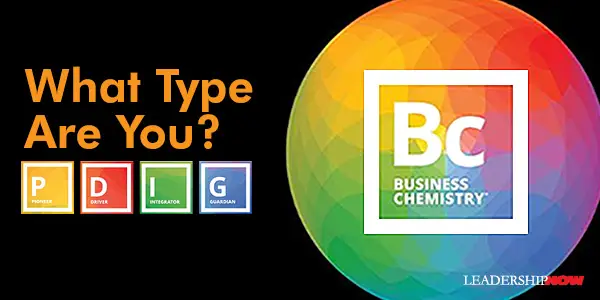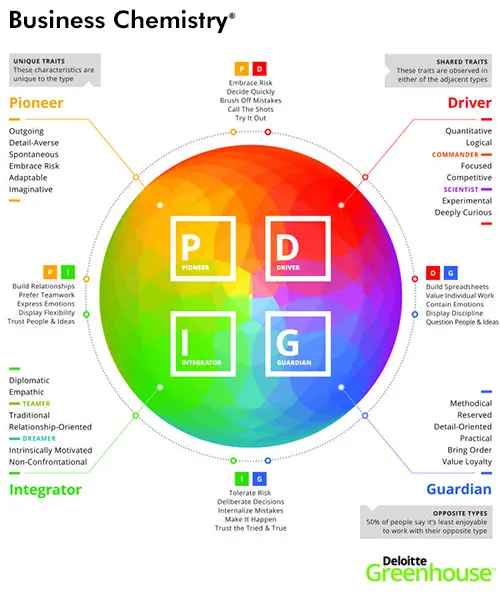 |
 |
09.03.18

Business Chemistry: What Type Are You?
T Business Chemistry is a tool for self-understanding and empathy—a way to identify meaningful differences between people’s working styles and perspectives. Kim Christfort and Suzanne Vickberg of Deloitte helped to develop Business Chemistry. It does not invalidate everything else of its type, rather it is designed to be simpler and thereby memorable and actionable on issues that really matter for people in the work environment. And it is quite straightforward for both accessing yourself and others you work with. Using the key sticking points between people, they identify 4 Working Styles:
The authors naturally go into detail on each of these types and give an example of a well-known person that fits that type. They also delve into difference between the types as they relate to stress (Pioneers are the least stressed.), career aspirations, environments they thrive in, and where each type if found organizationally and generationally. The trick of course, is to use this knowledge to modify you own behavior. Otherwise it’s just a game. “By learning about your own type and developing a hunch about the types of those you work with, you can see right away where some of your key differences and similarities are. Then you can determine how you might flex your own style to better match the preferences of those around you.” For example, too many constraints can completely shut a Pioneer down, while a Guardian may withdraw in an environment that feels too chaotic. A Driver may become very frustrated in an organization that lacks decisiveness, while an Integrator may wither on a team that doesn’t value broad-based input. Knowing these trigger points can help you as a leader to give people more of what they need to excel and less of what will turn them off. To understand your own style and develop your hunch about others you know, they’ve developed a test which you can take here. If you’re going to try it out for yourself, you might think about what you are naturally inclined to do and what you have learned to do. I might want to be direct with others but I have learned that I am more productive when I am diplomatic. But being that that is my natural tendency, I probably prefer when people are direct and concise with me. That fact would affect my working style profile. Interestingly, 32% of Millennials are most likely Guardians. They prefer having all of the answers and enjoy zooming into every detail. 29% of Baby Boomers are most likely to be Pioneers or Integrators. They grew up in a different time and may have adopted a more novelty-seeking and relationship–focused orientation.  
Posted by Michael McKinney at 08:21 AM
|
BUILD YOUR KNOWLEDGE
 

How to Do Your Start-Up Right STRAIGHT TALK FOR START-UPS 
Grow Your Leadership Skills NEW AND UPCOMING LEADERSHIP BOOKS 
Leadership Minute BITE-SIZE CONCEPTS YOU CAN CHEW ON 
Classic Leadership Books BOOKS TO READ BEFORE YOU LEAD |